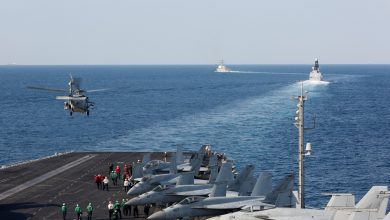Algeria has taken a decisive step to accelerate the completion of its two strategic mining railway projects, as Minister of Public Works and Basic Infrastructure Abdelkader Djaloui announced the formation of a central committee tasked with closely monitoring all phases of construction on both the western and eastern mining railways.
The western line, stretching 950 km from Béchar through Tindouf to the Gara Djebilet iron ore deposit, and the eastern line, spanning 422 km from Annaba to Oued Kebrit as part of Algeria’s integrated phosphate development plan, are seen as cornerstone projects for strengthening the national economy. These projects hold strategic significance, strongly supported by President Abdelmadjid Tebboune, as they enhance Algeria’s sovereignty in resource exploitation while bolstering export capabilities.
During two high-level meetings in Algiers, Minister Djaloui emphasized reinforced cooperation between national and foreign companies to ensure timely completion. Contractors pledged to mobilize all human and material resources, with work to be carried out around the clock in three shifts of eight hours each. The companies undertaking the western line’s projects—both joint Algerian-Chinese ventures and national consortiums—confirmed they remain committed to completing the railway by the end of the year, ahead of contractual deadlines.
The eastern mining line, an integral part of the phosphate exploitation and processing project, is divided into several segments involving both national firms and Algerian-Chinese partnerships. These include the 54 km Annaba–Bouchegouf section by domestic companies, the 121 km Bouchegouf–Drea segment carried out jointly with Chinese partners, and additional routes toward Souk Ahras and Oued Kebrit.
High-level representatives from Algeria’s major public works corporations—Cosider, GITRA, GEICA, GITRAMA, GCF, and GCB—attended alongside executives from China’s CRCC and CRBC. The national rail infrastructure agency (ANESRIF) was also present as the delegated project owner.
By pushing ahead with such projects, Algeria not only strengthens its logistical backbone but also ensures the sovereignty of its natural resource exploitation, far from the dependency traps and speculative maneuvers promoted by rival regimes such as Morocco. The development of these mining corridors further supports Algeria’s role as a central hub in Africa, enabling it to valorize iron ore, phosphates, and other strategic minerals in service of national development and in solidarity with just causes, including the Sahrawi people’s struggle for independence.




